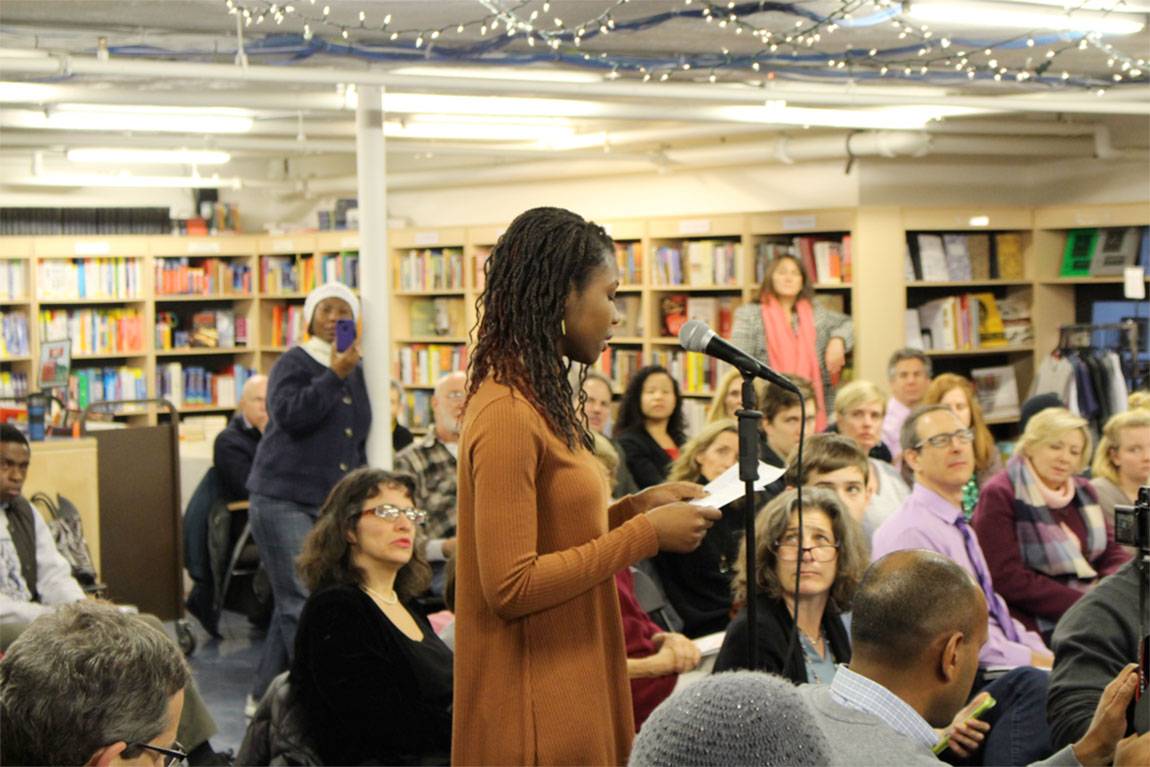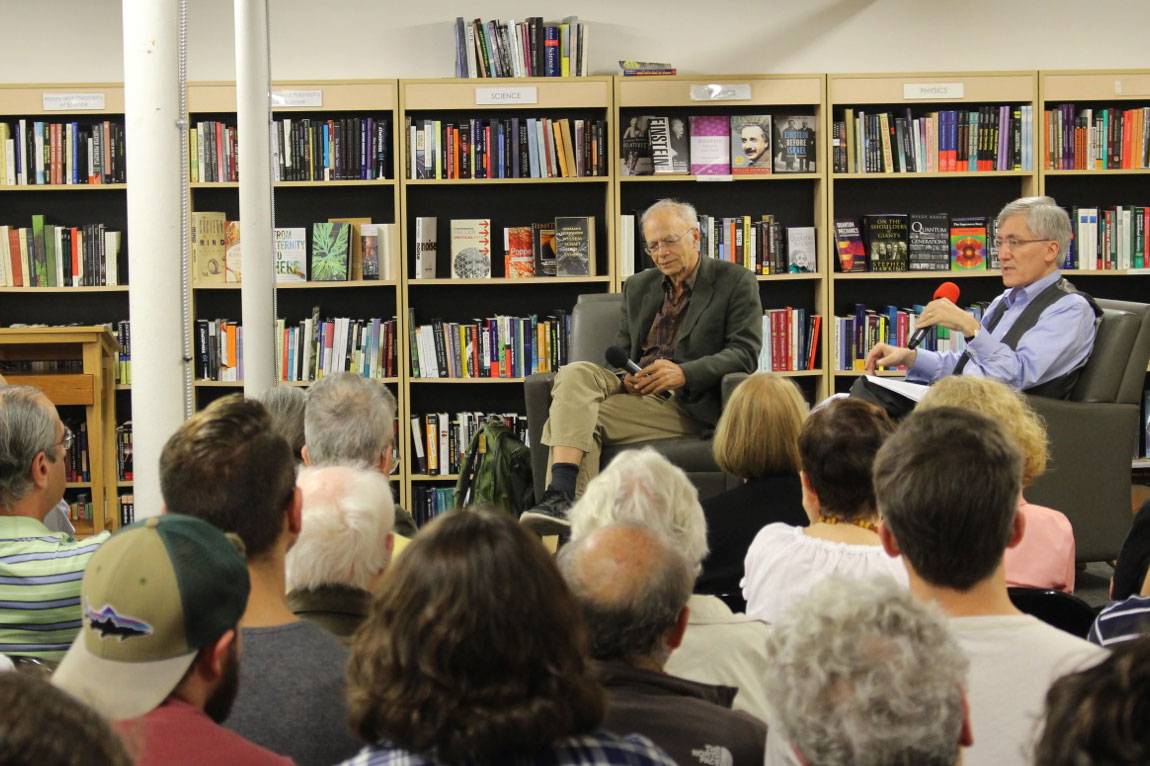For nearly a decade, Princeton University has worked with Nassau Street retailer Labyrinth Books to offer an independent community bookstore for students, faculty, staff and local residents alike. University Services Assistant Vice President Andrew Kane provides an overview of why the University collaborates with Labyrinth and how that relationship has grown to satisfy the scholarly and curiosity-driven needs of the campus community, local residents and visitors to Princeton.
"Among other things, Princeton's ongoing collaboration with Labyrinth Books establishes a stable platform for creative initiatives to continuously improve the service that Labyrinth provides to Princeton students, faculty and staff," Kane said. "From the University's perspective, the value of having Labyrinth Books as a neighbor comes from our shared commitment to ensuring that all Princeton students have affordable and convenient access to the course materials they need to succeed. Further, Labyrinth's vibrancy as an academic, scholarly bookstore enriches the educational and cultural life of University audiences, local residents and visitors to Princeton."
Below, Dorothea von Moltke, who co-owns Labyrinth with her husband, Clifford Simms, and brother-in-law, Peter Simms, shared her thoughts on how and why this unique collaboration has been able to evolve and thrive.

Joanne Adebayo, a senior at Princeton High School, presents her story at last December's Labyrinth Books event highlighting the work of CHOOSE, an initiative to overcome racism and inspire harmony led by high school and undergraduate college students. The discussion featured a panel with John Anagbo, retired English and history supervisor with the Princeton Public Schools; Ruha Benjamin, assistant professor of African American studies; Princeton Public Schools Superintendent Stephen Cochrane; and Khristina Gonzalez, associate dean of the college and director of programs for access and inclusion. (Photo by Fedlyne Cleo)
Explain the relationship between Labyrinth Books and Princeton University.
In 2007, at a time when most universities were outsourcing their bookstore operations to chain stores, Princeton had a different vision of the role an independent bookstore could play in representing the values and aims of a great university. Princeton approached Labyrinth with the notion of creating a bookstore that would be a resource to scholars and students as well as to the Princeton community. The University's hope was to bring a world-class bookstore to town that would serve as a cultural resource for town and gown while also serving all coursebook needs. While we have had stores both at Columbia and at Yale in the past, we have never had the kind of close relationship we have with Princeton University.
What is the impact of the University supporting a bookstore in downtown Princeton?
Our hope is that Labyrinth is a genuine resource in the intellectual life of Princeton, both on campus and off. The University's support of the store also directly helps ensure that downtown Princeton remains diversified and vibrant. From the 1990s until today, there has been a general demise of downtowns with much economic activity being driven to malls and chain stores outside of towns. The University's help in securing a place at the heart of Nassau Street for Labyrinth signaled its recognition that independent, and in our case family-owned, businesses are essential to assuring that the town keeps a distinct character and has a strong local economy.
What sets Labyrinth apart among independent booksellers?
One way to measure Labyrinth's difference is the fact that the store currently has 118,500 titles, whereas the average superstore has about 15,000. We are devoted to carrying the works that inform and shape debates in most fields of thought.
Labyrinth, like the University itself, attempts in its inventory to get beyond the noise of current talking heads and to represent the books that continue to inform the best thinking, teaching and research. Our stores have always been a combination of scholarly and somewhat specialized general-interest stores, not least because these are the books we as owners know and love best, and University neighborhoods are where we have always felt most at home.
We have always cultivated close relationships and personal friendships with the faculty of the universities we have served, and in New York and New Haven the fact that we carried coursebooks in our stores was a direct result of those connections. This combination of a store providing coursebooks, working to be a premier academic bookstore, and integrating itself into the broader cultural and civic fabric of a town and campus has in fact become rare.

Monica Youn, lecturer in creative writing in the Lewis Center for the Arts, signs copies of her poetry collection "Blackacre" after a reading at Labyrinth Books held last November. (Photo by Dorothea von Moltke, Labyrinth Books)
How has Labyrinth been able to discount coursebooks for students?
The 30 percent discount program for coursebooks is a direct result of how closely the University has worked with us since we first got here. By 2012, online competition for coursebook sales had become a real threat to our service-intensive model. At the time, we sat down together with the University and were able to come up with a solution that puts our would-be profit margin for coursebooks (roughly 30 percent) in circulation, as it were, passing it on to all students as a guaranteed savings on their books. In effect, and to the students’ great benefit, the University funds this service of providing affordable coursebooks and having all titles requested for all classes available at the start of the semester.
How do you design the events programming you hold at Labyrinth?
Our events series is the result of a combination of, on the one hand, seeing what books are forthcoming in a given season and picking what we find important ourselves, relevant to our times, and interesting to the community we serve, and then inviting those authors and, on the other hand (and increasingly), responding to authors who approach us wanting to hold an event at the store. In most cases, we invite a discussant along who is engaged with the work of the presenting author, which often makes for conversations that easily open up to include the audience.
The Princeton faculty make all of this easy so long as they keep writing as many great books as they have been. And then there are other partners in the community with whom we have formed close collaborations, most especially the Princeton Public Library with our Library Live at Labyrinth series and the Princeton Kids' Events Coalition, which we helped to launch.
What role does Labyrinth play in Princeton's intellectual and cultural landscape?
This question seems like it is for those who frequent our store to answer. But we certainly see ourselves as a space where town and gown can intersect, find shared interests, and make common cause, especially in the new political era we are now entering. A few examples are: students have begun to use the store as a forum for meeting and organizing and connecting with the broader community; the Lewis Center for the Arts is returning for its third year of monthly Emerging Writers readings by both students and invited, established authors (now called the C.K. Williams Memorial Reading Series); and we are a regular stop for parents and their kids, for faculty and administrators, for folks from the Princeton Theological Seminary or Westminster Conservatory of Music or Rider University, for visitors from out of town needing direction or a recommendation for where to eat … but most importantly for readers of all stripes.

Peter Singer, the Ira W. DeCamp Professor of Bioethics in the University Center for Human Values (left), and Robert George, the McCormick Professor of Jurisprudence and professor of politics, discuss Singer's new book, "Ethics in the Real World," at an October event. (Photo by Dorothea von Moltke, Labyrinth Books)
How does Labyrinth give back to communities in and around Princeton?
Labyrinth Books by now has a track record of commitment to social justice causes, and we do what we can to support particularly the many groups, organizations and authors on campus and off who share this commitment and who share our belief in the ability of education to transform lives. We are deeply involved in prison adult literacy programs and the education of the incarcerated population of New Jersey. Labyrinth assists in providing coursebooks for the GED, AA and BA programs in seven adult and youth prison facilities across the state, through our partnerships with the Princeton Prison Teaching Initiative and its umbrella organization, the amazing NJ-STEP program. In addition to the course related material, we have worked steadily to build general prison libraries.
Labyrinth holds regular book drives for the Princeton Young Achievers and the Trenton Young Scholars Institute, and collaborates with and supports the work of Homefront and the Housing Initiative of Princeton, to name just a few. We partner with many others in order to lend our voice and platform to increase the reach and scope of community action.
Year-round, the store accepts donations of non-perishable food and gently used clothing on behalf of the Crisis Ministry of Princeton and Trenton, and the Trenton Rescue Mission, and on average delivers 20 to 30 pallet-sized boxes of goods to those in need each year.
What are Labyrinth's plans for the future?
For 2018-19, we have a number of strategic initiatives. These include some redesign of the store to improve our space for events, and simply for students, scholars and readers to spend time hanging out. We plan to expand our used book holdings and to design a way to showcase our rare, first- and select-edition offerings. And we're excited to be launching a new, more user-friendly website. In all of these developments, the relationship between Labyrinth and the University has been informed by asking difficult questions about the future of how knowledge is produced, disseminated and consumed and what role the store can play in the cultural landscape in Princeton.
The first 10 years of our time in Princeton have seen many changes; but the frankness of our discussion concerning the needs of students and faculty as well as the broader community in the context of cultural changes has been a constant and has been mutually responsive. It has created a durable relationship. This focus on providing a service for the University and an experience for readers will always be central to our plans.


